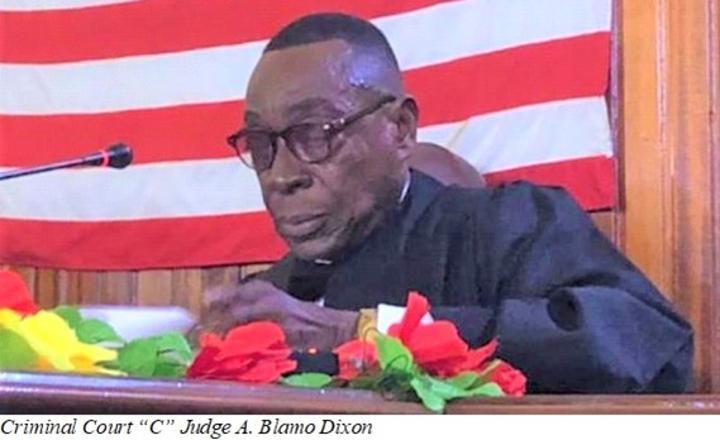Africa-Press – Liberia. Cllr. Blamo Dixon, Resident Judge of the Criminal Court “C”, has accused President Joseph Boakai of engaging in the practices of tribalism, nepotism, and favoritism in the appointment of public officials. This accusation was made on March 28, 2024.
Although the 1986 Constitution exclusively grants authority to the president to nominate individuals of his choice to positions within his government, Judge Dixon noted that out of every ten appointments, seven of the appointees are from Lofa County, where President Boakai hails.
“For every twenty persons appointed in government, fourteen hail from Lofa County,” Dixon claimed during his address as a guest speaker at the Induction and fundraising program of the leadership elect of the D. Twe Memorial High School in New Kru Town, Monrovia. The criminal court judge continued, “Yet, errors are made in the appointment process that need to be corrected.”
Judge Dixon, however, observed that the political culture of Liberia under President Boakai has not changed. “The True Wig Party Government was for the Americo-Liberians. The Samuel K. Doe Government was for the Krahn people. The Amos C. Sawyer Government was for the movement of Justice in Africa, and the Student Unification Party of the University of Liberia Group,” Dixon noted. Adding, “The Gyude Bryant Government was for the disbanded Warring Factions. The Charles Taylor Government was for the Americo-Liberians. The Ellen Johnson-Sirleaf government was for the Americo-Liberians. The George Weah government was for the South Eastern People. Therefore, the Joseph Boakai government is of no exception.”
Dixon claims that the Boakai administration, like previous governments, is making a mockery of the establishment of the war and economic crimes court. “A mere resolution cannot establish the War and Economic Crimes Court,” he noted. According to Dixon, the best course of action is to submit a bill to the House of Representatives for it to become law. “An act for the establishment of the war and economic crimes court should be passed, subsequently submitted to the Senate for approval,” he explained. He further stated that the Act should define the scope, functions, and modus operandi of the court, as well as the composition of the judges, and the salary, allowances, and benefits of judges and officers of the court.
Dixon also considers the President’s actions as another form of corruption. “Corruption is a social menace that is gradually eroding the fabric of Liberian society and needs to be eliminated. Corruption is not limited to stealing money; tribalism, nepotism, and favoritism are all forms of corruption,” he remarked, receiving loud applause from the students.
In his opinion on the tenure saga, Dixon suggested that President Boakai should first summon all tenured position holders to a meeting for their performance evaluation during their time served under the Weah administration. “Thereafter, a way forward can be determined because, under administrative law or the civil service code, an employee must be dismissed before being replaced. Two persons cannot perform the same job simultaneously, nor can two persons occupy the same office simultaneously.”
For More News And Analysis About Liberia Follow Africa-Press






